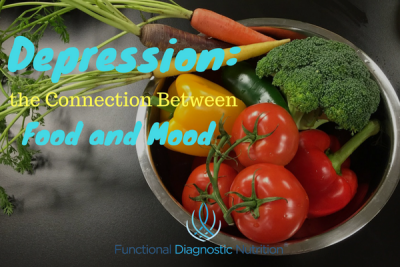In today’s fast-paced world, depression has become a common mental health issue that affects millions of people worldwide. While there are many factors that contribute to the development of depression, one often overlooked factor is nutrition. The food we eat has a direct impact on our mental health, and making positive changes to our diet can have a significant impact on our overall well-being.
The Gut-Brain Connection
Recent research has shed light on the connection between our gut and our brain, often referred to as the gut-brain axis. The gut is home to trillions of bacteria that play a crucial role in our physical and mental health. These gut bacteria produce neurotransmitters like serotonin and dopamine, which are essential for regulating mood and emotions.
A diet high in processed foods, sugar, and unhealthy fats can disrupt the delicate balance of gut bacteria, leading to inflammation and an imbalance in neurotransmitters. This can contribute to symptoms of depression and anxiety. On the other hand, a diet rich in fruits, vegetables, whole grains, and lean proteins can support a healthy gut and promote mental well-being.
The Role of Nutrients in Mental Health
Certain nutrients have been found to play a key role in mental health. For example, omega-3 fatty acids, found in fish oil and flaxseed, have been shown to reduce symptoms of depression and improve overall mood. B vitamins, particularly B6, B12, and folate, are important for neurotransmitter function and can help alleviate symptoms of depression.
Additionally, antioxidants like vitamin C and E can protect the brain from oxidative stress and inflammation, which are linked to the development of depression. Eating a variety of nutrient-dense foods can help ensure that you are getting the vitamins and minerals your brain needs to function optimally.
Making Healthy Choices
Making small changes to your diet can have a big impact on your mental health. Start by incorporating more fruits and vegetables into your meals, along with whole grains and lean proteins. Limit your intake of processed foods, sugar, and unhealthy fats, which can disrupt gut health and contribute to inflammation.
Consider adding in foods rich in omega-3 fatty acids, like salmon, walnuts, and chia seeds, to support brain health. Include sources of B vitamins, such as poultry, eggs, and leafy greens, to help regulate mood and reduce symptoms of depression.
Seeking Professional Help
While nutrition plays a significant role in mental health, it is important to note that it is not a replacement for professional treatment. If you are struggling with depression, it is important to seek help from a mental health professional. They can provide you with the support and resources you need to manage your symptoms and improve your overall well-being.
In conclusion, the link between nutrition and depression is a strong one. Making positive changes to your diet can support mental health and help alleviate symptoms of depression. By prioritizing nutrient-dense foods and supporting gut health, you can take steps towards a healthier mind and body. Remember to seek professional help if you are struggling with depression, and always prioritize your mental well-being.

